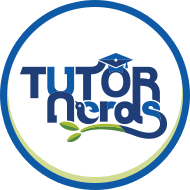Is your child twice exceptional?


How many of you out there have a child or teen who is struggling with a learning disability but seems to understand higher intellectual topics without prompting? How many of you have a child or teen who has been identified as gifted but seems to struggle intensely with just one subject or is often depressed or anxious? It is possible that your child may be considered “twice exceptional”, also known as “2e”.
A learning disability includes anything that interferes with “traditional” learning. Different educators have different ideas of the word ‘traditional’ but, in my book, a traditional learning environment in the second decade of the twenty first century decade of the 21st century includes: a school classroom with a teacher trained in classic teaching techniques, which include memorization, calculating success through examination, use of technology and that is often best suited to auditory learners.
Common learning (READ: Reaching Common Core Standards at an Early Age) disabilities include: ADD/ADHD, processing disorders, Obsessive Compulsive Disorder (OCD),various types of anxiety (including extreme test anxiety) and depression. This is just a short list.
A gifted child is one who has an IQ of about 130 or above in at least one area of the brain. A child does not have to be gifted in every subject to be considered gifted. They don’t necessarily learn faster, they learn differently. They are capable of achieving tremendous academic, creative and humanitarian achievements.
Here’s the catch. A gifted kid, with limitless potential may never even know that they are gifted if they are impeded by their learning disability. This is devastating for the child, their family and, quite possibly, the world at large. To quote the UNCF, “A mind is a terrible thing to waste”.
They may have one or more of the following strengths:
They must also have one or more of the following:
Please note: If your child does not have something from BOTH lists, they are probable not 2e.
The first thing to do if your child or teen has already been identified as learning disabled (LD) or if they have been formally diagnosed with clinical anxiety or depression, is to get an IQ test administered by a highly qualified professional. IQ tests have been criticized over the years and also highly praised, depending on who you ask. I suggest finding a tester who has been identified as gifted themselves, as they would have professional and personal insight into the mind of the gifted child.
Take a look at the Gifted Development Center’s website for more insight. The second thing to do is talk to ALL of your child’s teachers. They may or may not be able to recognize giftedness because additional and specialized training is required in this area. However, it never hurts to ask. If even one teacher-core subject or elective-thinks that your child might have qualities of giftedness, I suggest that you investigate further. If none of your child’s teachers think that he or she might have underlying giftedness, don’t stop there. Certain types of giftedness are hidden due to learning disabilities, especially in the teen years.
A third option is to think back into your family tree. Often giftedness runs in the family. This is not always the case but it is a good indicator in many instances. Please note that standardized test scores are NOT a good indicator of giftedness. They are only a good indicator of how well a student takes an exam under a tight time schedule. That being said, many gifted children score very highly on standardized exams, but others receive average scores or very low scores. Standardized exams test the average population of millions of children.
A fourth option is to observe whether or not your child engages in imaginative play. As a disclaimer, this will only be effective if your child is under 5-7 years of age, a time when many learning disabilities have not yet been identified. If your little one lines up all of their toys and creates an imaginary scene and gives character and voice to the objects (horses, dolls, dinosaurs, soldiers etc…) and then puts on a little play in their mind, the child is using imaginative play. Highly creative children can create play scenarios out of the most simple of objects. Video and computer games do not count as imaginative play.
Twice exceptional children may be harder to identify in the classroom environment due to frustration with traditional academics. Parents and educators can also look for the following signs of Twice Exceptional or 2e:
For many learners, identifiers of 2e can become harder and harder to locate during the teen years. There is so much going on in the life of any teen, let alone one who is dealing with both giftedness and learning disabilities. However, this may be the MOST important time to get academic assistance for a student who learns differently. Learning is definitely more of an art than a science and I have no doubt that more and more information will become available in future years.
Think of the differences and benefits that a non-traditional learner would be able to take advantage of today as opposed to 50 years ago. In the mean time, however, your child is dealing with the tools we have available to them in 2014. The quicker and more accurately a 2e child is identified, the quicker and more effectively they can receive academic assistance to help them not only survive but thrive in the early years of the 21st century.
Extra sources:
NCLD

Orange County parents and students, listen up! Beat the summer slowdown with a private, in-home tutor. We work around your schedule so you can stay sharp while having fun in the sun. Read: 10 Reasons You Need a Summer Tutor. What are you waiting for? Call us.
100% Satisfaction Guarantee
You’ll love your tutor, or you don’t pay.

We will evaluate your situation and answer any questions. We will then individually match you with one of our tutors. Your tutor will recommend the best strategies for you based on your goals. You’ll work with the same tutor ongoing and you can schedule directly with your tutor.
100% Satisfaction Guarantee – You’ll love your tutor, or you don’t pay
| Cookie | Duration | Description |
|---|---|---|
| cookielawinfo-checkbox-analytics | 11 months | This cookie is set by GDPR Cookie Consent plugin. The cookie is used to store the user consent for the cookies in the category "Analytics". |
| cookielawinfo-checkbox-functional | 11 months | The cookie is set by GDPR cookie consent to record the user consent for the cookies in the category "Functional". |
| cookielawinfo-checkbox-necessary | 11 months | This cookie is set by GDPR Cookie Consent plugin. The cookies is used to store the user consent for the cookies in the category "Necessary". |
| cookielawinfo-checkbox-others | 11 months | This cookie is set by GDPR Cookie Consent plugin. The cookie is used to store the user consent for the cookies in the category "Other. |
| cookielawinfo-checkbox-performance | 11 months | This cookie is set by GDPR Cookie Consent plugin. The cookie is used to store the user consent for the cookies in the category "Performance". |
| viewed_cookie_policy | 11 months | The cookie is set by the GDPR Cookie Consent plugin and is used to store whether or not user has consented to the use of cookies. It does not store any personal data. |

